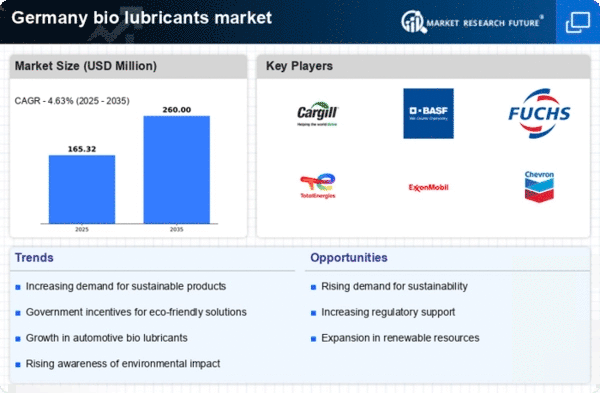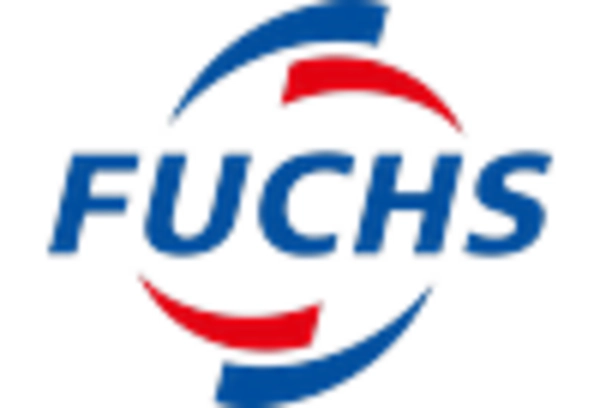Market Trends
Key Emerging Trends in the Germany Bio-lubricants Market
Germany’s bio-lubricants market is witnessing significant patterns that align with the nation’s commitment to environmental sustainability and the shift towards greener substitutes. In Germany, bio-lubricants derived from renewable sources are increasingly gaining momentum in a bid to cut down on its ecological footprint. Eco-friendly lubricating solutions have become some of the major trends in the bio-lubricants market after concerns related to environment were raised. On the other hand, industries across Germany have shifted towards bio-based lubricants to minimize their environmental footprints as well as meet strict regulations geared towards achieving lower carbon emissions and supporting sustainable practices.
The German automotive industry acts as a driving factor for their nation’s bio-lubricant sector. As a leading global automobile hub, there is an increasing demand for products that use biodegradable substances such as these automotive lubricants made from biological feedstocks. The reason why bio-lubricant has gained popularity among both end users and manufacturers in this industry is mainly because it can be easily decomposed by natural processes, it has low-toxicity levels compared to conventional lubricants and its resultant effects on environment are significantly reduced. The German automotive industry is transitioning into more sustainable approaches where vehicle maintenance incorporates biodiesel thus resulting in increased adoption of bio-lubricants hence contributing towards growth of this market.
Moreover, another remarkable tendency is promoting the usage of biolubricants within industrial applications. Bio-lubrication finds an increasing application in various industries across Germany where manufacturing forms one of its pillars. This includes machinery, manufacturing equipment, hydraulic systems etc. Companies’ embracement of use of eco-friendly oils for their plants aims at improving operational efficiency while minimizing any possible environmental impacts caused by traditional type lubes.
Additionally, the Germany’s Bio-Lubricant market is taking advantage of growing circular economy concept. The notion behind a circular economy suggests products and materials should be designed for re-use, recycling and repurposing, which is synonymous with bio-lubricants. Closed loop systems are often emphasized by most manufacturers to help produce biolubricants that can be obtained from renewable sources and later recycled or disposed in environmentally friendly manner. Such circular approaches contribute to the overall sustainability of these products and are aligned with broader environmental objectives in Germany.
Bio-lubricant market trends in Germany are being defined by a range of government initiatives and regulations. The country has introduced policies encouraging use of renewable resources rather than depending on fossil fuels only. This creates a favorable environment for adoption of bio-lubricants that pushes companies in search for more sustainable lubrication solutions. Moreover, government support as well as incentives also stimulates innovativeness into the field and stimulates further research within the bio-lubricants industry.
Moreover, researches conducted as well as development initiatives are resulting into transformations taking place within German’s Bio-Lubricant market. All through the process scientists and manufacturers keep searching for alternative feedstock including refining techniques aimed at improving performance properties whenever compared to their earlier versions. Some innovations such as better viscosity; thermal stability; and ability to serve as lubricant have made them to be competitive enough with ordinary examples thus increasing acceptability levels among all users.
However, despite these positive trends, there remain some challenges such as cost and lack of awareness facing this market segment in Germany today. Nonetheless, bio-lubes may prove expensive when contrasted against traditional lubricating oils hence hampering their widespread adoption among users from different parts of the globe. Nevertheless, as economies scale up leading to technological advancement, there is an anticipated decline in this cost difference thereby making eco-friendly lubricants affordable across various industries that may want them.


















Leave a Comment